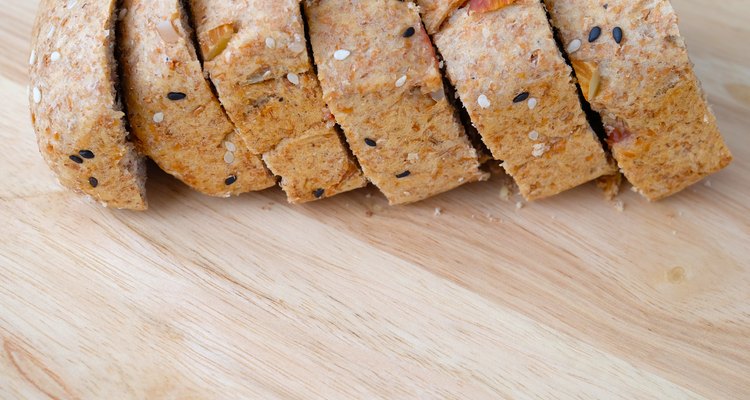
aipao/iStock/Getty Images
Vital wheat gluten isn’t an ingredient that’s as common in pantries as flour or sugar, but it lasts nearly as long and can prove just as useful in healthy baking. The product is about 75 percent wheat protein and is most often sold in a powdered, boxed form.
Benefits
Vital wheat gluten’s shelf life is one of its many benefits. It’s a very stable product, so it can be stored unopened at room temperature for years. It also provides huge advantages to whole grain bread loaves. According to Baking911.com, vital wheat gluten improves the texture of bread by lightening it. It also makes loaves rise better and increases the total protein content of each loaf. Recipes that use only refined white flour do not need vital wheat gluten for rise or texture, but the powder makes a big difference in the results for any whole grain loaf.
Unopened
According to Honeyville Farms, an unopened box or can of vital wheat gluten will remain usable for seven to 10 years as long as it is stored away from bright light and extreme temperatures. Vital wheat gluten does not contain any preservatives, but an unopened package has few opportunities to become contaminated or rancid and will remain fresh until some months after it’s been opened.
Opened
Vital wheat gluten that has been opened does pose a very small risk of becoming rancid. However, an item’s fat content is usually proportional to the odds that it may go rancid, and according to KingArthurFlour.com, vital wheat gluten is completely fat-free. The product’s instructions don’t call for storage in the refrigerator or freezer, although storing the powder in such a cool place may extend the shelf life of an opened package to the seven or 10 years it can survive unopened. At room temperature or in the refrigerator, the powder is likely to remain usable for at least a year or two.
Baked
A tablespoon or so of vital wheat gluten does more than make a loaf of whole grain bread stretchy, elastic, light and airy; it can also improve the shelf life of the baked loaf. Although home-baked and bakery-made loaves are prepared without preservatives and are likely to begin going stale on the day after they’re baked, Honeyville Farms states that vital wheat gluten can enhance a loaf’s shelf life, keeping it edible for an extra day or two. The product may even keep mold from developing on the bread for a bit longer than normal.
Considerations
The way you store your vital wheat gluten impacts how long it will stay fresh and usable. Certain elements, such as bright sunlight and extreme heat or extreme cold, break down the nutritional value and potential use of many pantry staples. Thus, to enjoy the best odds of keeping vital wheat gluten fresh for years, store it in an airtight container in a dark pantry, freezer or refrigerator.
Related Articles
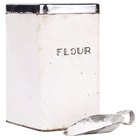
Does Flour Expire?

Can I Substitute Bleached for ...

Does Bread Expire?

Differences Between Bleached Flour & ...

When Does Dry Yeast Expire?

How to Freeze Brioche

If Flour Has Never Been Opened Can It ...

How to Keep Muffins From Going Moldy

How to Store Baking Soda Long-Term

Whole Wheat Pastry: Flour Substitutions
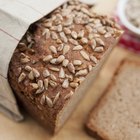
Russian Rye Bread vs. Pumpernickel
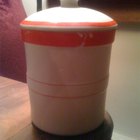
How to Make a Bread Starter

Does Unbleached Bread Flour Make ...
How to Keep Crusty Italian Bread Soft

Can You Use Musty Smelling Flour?
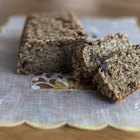
Gluten-Free Bread Without Eggs

How to Store Fresh Baked Bread

Gluten-Free Cheesecake Nut Crust

Chocolate Chip Cookie Dough Brownies

Does Light Affect How Long Bread Will ...
References
Writer Bio
Carly Schuna has been freelance writing and editing for more than a decade. In the lifestyle sector, her specialty areas are wellness, food/drink, and entertaining. With hundreds of recipes and nutrition-focused articles in her portfolio, Carly loves helping readers put a healthy spin on classics in the kitchen without sacrificing taste.
Photo Credits
aipao/iStock/Getty Images